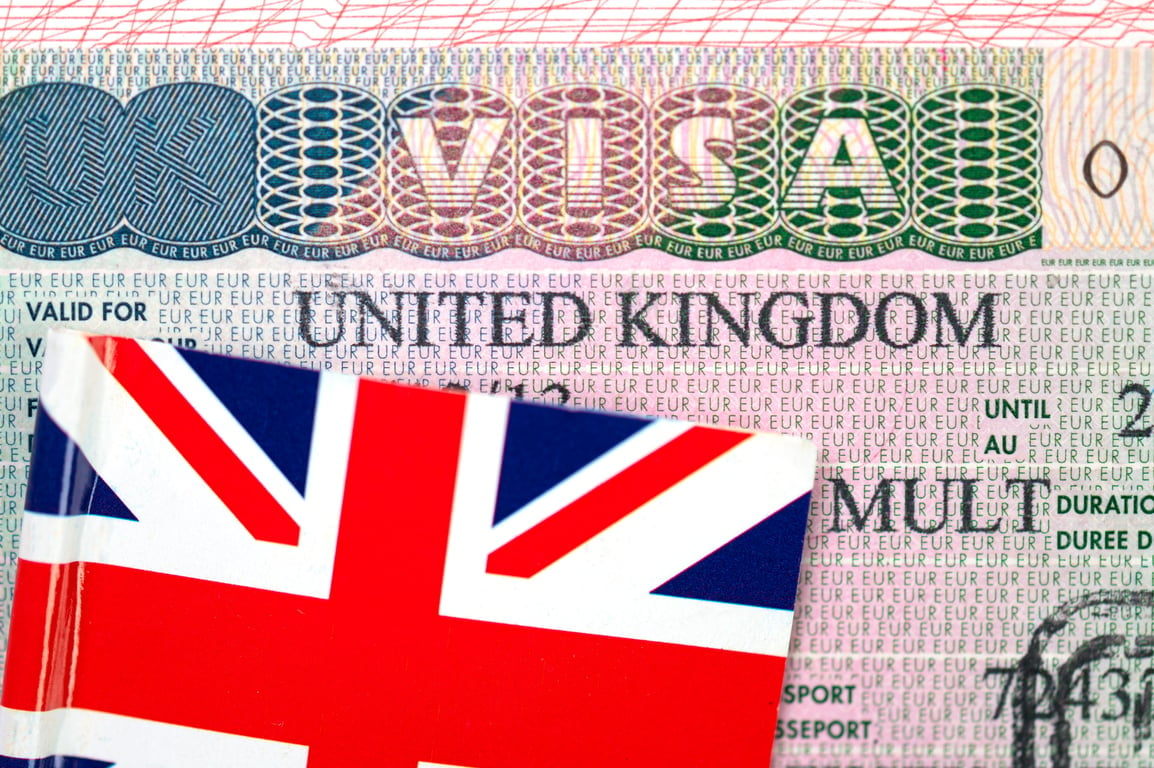Travel/Tourism
How Businesses Can Make Good Use of Transportation Services

Transportation services play a vital role in the operations of businesses, facilitating the movement of goods, services, and personnel. To make good use of transportation services, businesses must implement effective strategies and practices to optimize efficiency, reduce costs, and enhance overall productivity. This article will explore various ways in which businesses can make good use of transportation services to support their objectives and achieve success.
Supply Chain Optimization
One of the key ways businesses can make good use of transportation services is by optimizing their supply chain management. Effective supply chain optimization involves streamlining transportation routes, consolidating shipments, and minimizing transit times to reduce costs and improve efficiency. By leveraging transportation services strategically, businesses can ensure timely delivery of goods, minimize inventory holding costs, and meet customer demand effectively. Moreover, businesses can use transportation data and analytics to identify inefficiencies and opportunities for improvement within their supply chain, allowing for continuous optimization and enhancement of transportation operations.
Just-in-Time Inventory Management
Using just-in-time (JIT) inventory management strategies, businesses may also benefit from transportation services. To decrease storage costs and inventory holding charges, JIT inventory management tries to synchronize production schedules with customer demand. This minimizes inventory levels. Transportation services play a critical role in JIT inventory management by facilitating the timely delivery of raw materials, components, and finished goods to production facilities and distribution centers. By relying on efficient transportation services, businesses can maintain lean inventory levels while ensuring that materials and products are available precisely when needed, thereby optimizing operational efficiency and reducing waste.
Customer Service Excellence
In the realm of transportation services, customer service excellence plays a pivotal role in ensuring a smooth and satisfactory experience for clients. If you are living in New York, considering options like charter bus rental in New York City, prioritizing customer service can make all the difference in meeting and exceeding passenger expectations. From the initial inquiry to the completion of the journey, providing attentive and responsive customer support enhances the overall reputation and reliability of transportation companies. Whether addressing inquiries, accommodating special requests, or resolving any issues that can arise during travel, exceptional customer service fosters trust and loyalty among clients. By focusing on customer service excellence, transportation services can effectively distinguish themselves and build lasting relationships with their clientele.
Expansion into New Markets
When it comes to expanding into new markets and reaching clients in other countries or territories, businesses can make use of transportation services to get a competitive advantage. Through the use of transportation networks and logistical skills, firms can efficiently expand their market reach and enter new geographic regions. Businesses can employ transportation services to distribute their goods to new places, build distribution channels, and enter new markets with a strategic approach. This is true whether the firm is growing domestically or worldwide. In addition, companies can use transportation data and insights to recognize new market trends, consumer preferences, and chances for competitive advantage. This enables businesses to make educated decisions and develop proactive plans for market development.
Sustainability Initiatives
In today’s environmentally conscious business landscape, businesses can make good use of transportation services by incorporating sustainability initiatives into their operations. Sustainable transportation practices, such as using alternative fuels, optimizing route planning, and reducing emissions, can help businesses minimize their environmental impact and support corporate social responsibility (CSR) goals. By partnering with eco-friendly transportation providers and adopting green logistics practices, businesses can reduce carbon emissions, conserve natural resources, and promote environmental stewardship throughout their supply chain. Moreover, businesses can communicate their sustainability efforts to customers and stakeholders, enhancing brand reputation and attracting environmentally conscious consumers.
Conclusion
In conclusion, businesses can make good use of transportation services by optimizing their supply chain management, implementing just-in-time inventory practices, prioritizing customer service excellence, expanding into new markets, and embracing sustainability initiatives. By embracing transportation services as a strategic asset, businesses can achieve their objectives and thrive in an increasingly interconnected and global marketplace.
Travel/Tourism
UK to Issue Digital Visas to Nigerian Travellers from February 25

By Adedapo Adesanya
The United Kingdom says all Nigerian visitors to the country, who need a visa, will only get a digital visa from February 25, 2026.
In a statement, the UK Visas & Immigration said that from the scheduled date, all Nigerian nationals applying for a UK Visit visa will receive an eVisa, rather than a vignette (sticker) in their passport.
The shift also indicates that travellers will access their visa electronically through their UK Visas and Immigration (UKVI) account, marking a significant step in modernising the UK’s visa process.
For Nigerian applicants, the visa application requirements remain unchanged. Travellers will still apply as usual, attend a Visa Application Centre to provide biometric information, and meet all existing eligibility criteria. The only difference is how the visa is issued: instead of a physical sticker, applicants will receive a secure digital record of their immigration status.
According to a statement, the British government clarified that Nigerians currently holding a valid vignette sticker do not need to take any action. Their physical visa remains valid until it expires or requires replacement.
It added that the move to eVisas brings a number of benefits for Nigerian travellers, including passports being returned more quickly and travellers being able to manage their immigration status online at any time, from any location. The digital format offers stronger security as eVisas cannot be lost, stolen, or tampered with.
Welcoming the transition, British Deputy High Commissioner in Abuja, Mrs Gill Lever, said, “We are committed to making it easier for Nigerians to travel to the UK. This move to digital visas will streamline a key part of the visa process, making it more secure while reducing dependence on paper documents. We look forward to continuing to welcome Nigerian visitors, students, and workers to the UK.”
Once a visa is approved, applicants will need to create a free UKVI account to access the eVisa.
Travel/Tourism
Russia Facilitates Travel, Tourism for Africans

By Kestér Kenn Klomegâh
Russian Foreign Minister, Sergey Lavrov, has reiterated the official statement on expanding visa-free travel between Russia and Africa, signaling Kremlin’s earlier position on facilitating people-to-people movement and raising cultural interaction. The question of ‘visa-free’ travel and tourism dominated discussions during the first and second Russia-Africa summits, as a step to embrace new bilateral relations and soft-power diplomacy with Africa.
While ‘visa-free’ travel could be interpreted as a potential driver for boosting tourism business, Sergey Lavrov’s definition limited this policy only to ‘Africans holding diplomatic passports’ and largely excludes political elites and business executives looking to develop entrepreneurial connectivity to Russia. The broader ambition is to focus on Africa’s middle class, estimated at 380 million envision as the constituting a huge tourism market, which is twice Russia’s population.
The Russian Ministry of Foreign Affairs has further underlined the fact that the implementation of a ‘visa-free regime’ with all African countries aims at strengthening cultural relations with the continent. That announcement filled the local Russian media from Moscow to Vladivostok. Later, the Ministry clarified that the ‘visa-free regime’ for African countries was still under serious review. Diplomatic talks with various countries on the drafts of visa-free travel agreements were underway at different stages, as each had its specific requirements. There was a need to categorise African countries into groups.
This initiative is within the framework of the Joint Action Plan (2023-2026) adopted at the second summit in St. Petersburg. From investigations, Russia has ‘visa-free agreements’ with only six African countries. The visa-free regime only applied to African countries that signed agreements with the Foreign Ministry. Within the agreements, only holders of diplomatic passports are permitted under this consular agreement. According to sources monitored, agreements would be signed after successful negotiations with Russian authorities.
The Head of the Russian Foreign Ministry’s Consular Department, Alexey Klimov, explained in an interview with local Russian media: “Russia is currently working out travel agreements on abolishing visa requirements and providing visa-free entry for short-term trips, usually up to 90 days, with several friendly states, nine of them being the countries of Africa and the Middle East.”
“As always, we will immediately inform the public about the concrete results achieved and embodied in documented bilateral agreements,” Klimov concluded, the full transcript posted on the official ministry’s website.
With the changing times, Russia has been pursuing an integrative, multipolar approach in its relations with friendly countries around the world, including those in Africa. During these past few years, Asian countries, such as China and India, have been granted such short-term visa-free privileges. In practical terms, this policy boosts tourism. It is noticeable that Russia remains a holiday destination for Africa’s political elite, corporate business leaders, and the middle class. But undoubtedly, African politicians and corporate business leaders highly prefer to spend their vacation in the United States and Europe. Some Asian destinations are becoming increasingly popular as a preferred choice for recreation. That trend is unlikely to change; it will remain as such for the next few decades.
Tourism topic at Russia-Africa summits
Following the Russia-Africa summits, both Russia and Africa adopted joint declarations—in fact, comprehensive documents that outline various parameters for elevating cooperation to a new qualitative stage.
Tourism is one of the most highly praised spheres during discussions. Brilliant speeches called for the frequent exchange of cultural groups and the taking of comprehensive measures to promote a broad scope of cultural and tourism collaboration between Russia and Africa.
Ultimately, to boost compelling economic interests and foster cooperation, frequent interactions are necessary. The frequency of interaction should not be limited to summits and conferences alone. Some basic strategic steps and measures are also required to encourage simple holiday travels to both regions.
These are significantly missing in the current relations between Russia and Africa. Critics often argue that Russia is contributing considerably to its so-called isolation by closing its doors, especially when there are considerable opportunities to develop high-quality tourism. The African elite could visit Moscow, St. Petersburg, and coastal cities, including Sochi, as well as along the Volga River.
Indeed, playing with flexible visa regimes will not only promote tourism and strengthen cultural ties, but also, in practical terms, will build positive perceptions and further help to neutralise a high level of Western media disinformation across the continent. There is a need to adopt a pragmatic approach to these crucial questions and carefully examine social aspects to enhance people-to-people interactions.
Notably, Russian officials consider visits by heads of African states and ministers to be an essential pillar of their version of building relations in the anticipated multipolar world.
With the current geopolitical situation, Africa’s middle class, estimated at 380 million (twice the population of Russia), has suitable alternative holiday destinations. For now, Moscow and St. Petersburg are not their desired priority for spending vacations. Russian tour operators acknowledge, in a media query with this article’s author, that there is no bilateral entrepreneurial activity between Russia and the African tourism sector. However, on the other hand, African destinations such as Egypt, Morocco, the Maldives, Seychelles, South Africa, and Zanzibar are popular among Russian vacationers.
Most often, Russian and African experts have been discussing how best to promote exchanges of delegations, explore untapped resources, and explore the possibilities of boosting cooperation in the field of tourism, as well as the dissemination of information on tourism opportunities in the Russian Federation and African States.
Over the past few years, the summit declarations have remained tacitly as declarations. In practical terms, the visa-free regime for African countries has mainly remained as official declarations. The fundamental question often asked is for what purposes the summit declarations are made.
Current Tourism Challenges
Russian experts say Chinese, Indians and many Asians are the real potentials, taking advantage of the emerging opportunity to travel to Russia, more than Africa’s middle class and entrepreneurs. In addition, Africa is currently assessed as “reawakening to geopolitical changes” and less capable of taking their own development initiatives based on the huge resources on the continent.
The continent’s challenges still existed. Notwithstanding that, Africa is seemingly moving from the periphery toward the negotiating table. With tourism, engagement remains weak and fragmented. In comparison, in African and Asian tourism, that distinction matters. Africa has a demographic advantage, but the dynamics of tourism perceptions are low.
In the sense of uplifting bilateral partnerships, especially during this time at the heightening of geopolitics, Africa is not simply a reliable partner but has to be treated as such for operating at the tourism development scale. The future of the relationship can be an extremely positive lever, and to take important steps for mapping out diverse ways for its sustainability and expansion. Less arguably, Africa’s political leadership and business executives have explicitly understood the criticality of Russia’s ‘visa-free’ regime, as one of the most geopolitical rhetoric in the contemporary era.
Multifaceted relations with Russia
Russia is ready to build multifaceted relations with Africa. “If Russia Wins, Africa Wins!” remarked Azali Assoumani, President of Comoros, during the late July St. Petersburg summit plenary session in 2023.
With hopes for an enduring collaboration on long-term programs, the Secretariat of the Russia-Africa Partnership Forum was created. And it has since been networking, intending to promote Russia’s economic interests in Africa and to foster mutually beneficial cooperation with African countries.
The Director of the Department of Partnership with Africa of the Russian Foreign Ministry, Tatiana Dovgalenko, in an interview with the TV BRICS channel on July 9, 2025, emphasised that the importance of her new department is its functionality—focus on the comprehensive, integrated development of relations between Russia and the entire African continent, which are experiencing a genuine revival today. It implies that the main task is to implement the decisions which cover a wide range of cooperation areas, including culture and tourism.
While Russian officials focus on their work aimed at increasing Russian presence in Africa, the role of Africa in the Russian Federation is vastly underestimated. At these changing times, officials have to necessarily note with mutual interest the economic presence of Africa, beyond just training students, in the Russian Federation. And, of course, promoting African tourism is not only a promising niche but also a unique pathway for sustaining bilateral cooperation.
Still on the topic of bilateral tourism, Tatiana Dovgalenko rightly pointed out that more active participation by representatives of the African tourism industry in various events in Russia, along with the introduction of visa-free travel to African countries, would help increase the tourist appeal of Africa. Within the Action Plan of the Russia-Africa Partnership Forum for the period 2023-2026, it is anticipated that both Russia and Africa will hold constructive positions on mutual bilateral ties in this emerging multipolar world.
Travel/Tourism
FAAN Launches Energy Efficient Shuttle to Support Abuja Airport

By Adedapo Adesanya
The Federal Airport Authority of Nigeria (FAAN) has unveiled 30 airport electric shuttle which will be used to complement airside and landside logistics.
The shuttle, which comprises 10 vehicles and 20 saloon cars, will cost N10,000 per passenger from the Nnamdi Azikiwe International Airport, Abuja to the City Centre.
Speaking at the event, the governing board chairman of FAAN, Mr Abdullahi Ganduje, said: “Electric vehicles offer clear operational and environmental benefits. They are cleaner, quieter and more energy-efficient, significantly reducing carbon emissions and helping FAAN minimise its ecological footprint. Their use will contribute to healthier airport environments and a more comfortable work and travel experience.
“From a logistics standpoint, electric vehicles also enhance monitoring, coordination and compliance. Their predictable performance and lower maintenance demands improve operational planning, accountability and service reliability. Ultimately, this translates into more efficient, transparent and passenger-friendly services.
“This initiative directly supports global sustainability targets, including International Civil Aviation Organisation’s goal of achieving net-zero carbon emissions by 2050. By embracing electric mobility, FAAN is positioning Nigerian airports to remain competitive, responsible and future-ready.”
Mr Ganduje pledged the commitment of the board to ensure that the initiative is utilised, maintained, and expanded to other airports in the country.
On her part, the managing director of FAAN, Mrs Olubunmi Kuku noted that the agency has secured approval to deploy 100 electric vehicles to operate as airport shuttles at Lagos and Abuja airports.
“We have secured approval to deploy 100 Electric Vehicles (EVs) to operate as airport shuttles at both Murtala Mohammed International Airport, Lagos, and Nnamdi Azikiwe International Airport, Abuja. It is a monumental step towards greening our operations and reducing our carbon footprint.”
“We proudly begin this journey with the first phase: the launch of these 10 state-of-the-art electric shuttle buses. They represent more than just transport; they symbolise cleaner air, quieter terminals, and a to pioneering sustainable infrastructure in Nigerian aviation”.
She expressed optimism that the initiative would be replicated across all airports in the country.
The head of Fleet Operations of Possible EVS, Mrs Abimbola Gyer while stating that the transport fare would be subsidised for passengers, added that operations would commence from 7am to 7pm daily.
“We partner with NEV Electric, the manufacturer of the electric buses. We would be moving passengers from the airport to the city centre at the rate of N10,000 and as demand continues, we will expand our hub. The operations will start from 7 a.m. to 7 p.m daily,” she noted.
-

 Feature/OPED6 years ago
Feature/OPED6 years agoDavos was Different this year
-
Travel/Tourism10 years ago
Lagos Seals Western Lodge Hotel In Ikorodu
-

 Showbiz3 years ago
Showbiz3 years agoEstranged Lover Releases Videos of Empress Njamah Bathing
-

 Banking8 years ago
Banking8 years agoSort Codes of GTBank Branches in Nigeria
-

 Economy3 years ago
Economy3 years agoSubsidy Removal: CNG at N130 Per Litre Cheaper Than Petrol—IPMAN
-

 Banking3 years ago
Banking3 years agoSort Codes of UBA Branches in Nigeria
-

 Banking3 years ago
Banking3 years agoFirst Bank Announces Planned Downtime
-

 Sports3 years ago
Sports3 years agoHighest Paid Nigerian Footballer – How Much Do Nigerian Footballers Earn
















